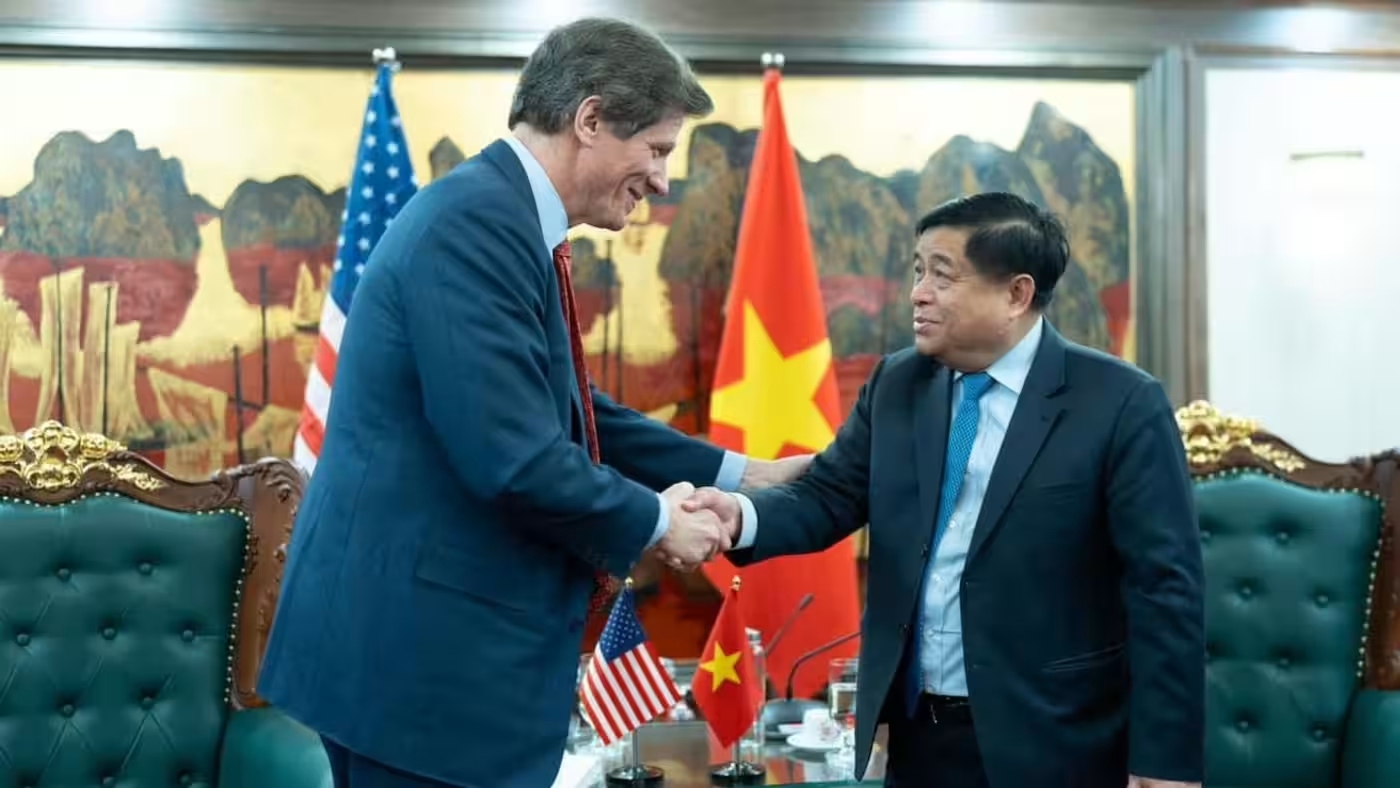India–US Trade Tensions Rise Over Steel and Auto Tariffs NMDC Limited reports a 38% drop in Q4 FY24 consolidated net profit RINL to Raise $23 Million Through Land Sales Amid Crisis

Washington is willing to invest in Vietnam's chip sector to strengthen supply chains, and the country should "take advantage" of its efforts to minimise dependency on China, according to a visiting US envoy.
Part of the US's CHIPS and Science Act, which includes $500 million for enhancing cybersecurity, semiconductor training, and business climates globally, is aimed at seven countries, according to US Undersecretary of State for Economic Growth, Energy and the Environment Jose Fernandez. In an interview with Nikkei Asia, Fernandez stated that Vietnam should act as well before it is too late to draw in capital for essential sectors such as renewable energy and minerals that can be utilised to make batteries and electric vehicles.
Vietnam's officials have been pressing hard for the US to designate the communist country as a market economy, a move that would bring tariff cuts. Besides that issue, Fernandez said he discussed renewable energy with officials, saying that problems with permits may hold back as much as $8 billion of US investment, including by chip companies that pledge to use only clean power.
The US will allow foreign aid under the CHIPS Act based on recommendations by the Organisation for Economic Co-operation and Development due in February. The study includes asking companies what Vietnam needs to develop the semiconductor industry, such as training, Fernandez said.
"We went through a list of countries that we felt had the potential to benefit from our support, and Vietnam was one of the first countries we thought about," he said in an interview.
Vietnam is a top exporter of electronics and ranks second globally for reserves of rare-earth metals, after only China, US Geological Survey data shows, though how much can be mined is unclear.
The US aims to rebuild its presence in a rare-earth market that has been dominated by China's lower-cost production for decades, which Washington sees as a strategic vulnerability. As recently as 2017, there was no rare-earth production in the US America is resurrecting its own mines, has entered a deal to coordinate financial and diplomatic support on minerals with 13 countries, and has offered to help Vietnam survey its deposits.
"There's a great hunger in the world for critical minerals," Fernandez said. The "competitive advantage" of the US and partners is to do mining "that benefits communities, that does not degrade the environment and that brings additional technology and investment."
When asked about US investment moving out of China, he said: "This is an opportunity. Vietnam has the potential to become an even greater manufacturing hub."
He added that the country's young workforce is an asset, saying he told students during his visit, "Take advantage of this, because it may not be here forever."
Since President Joe Biden upgraded bilateral ties during a visit to Vietnam in September, the country has stepped up its campaign to be considered a market economy. "This is not a political decision," Fernandez said. "It's a quasi-judicial process that's governed by the laws."
Also Read : US seeks to jumpstart production of higher-energy uranium now made in Russia US aluminium maker Alcoa makes $2.2 Bn offer for Australia's Alumina